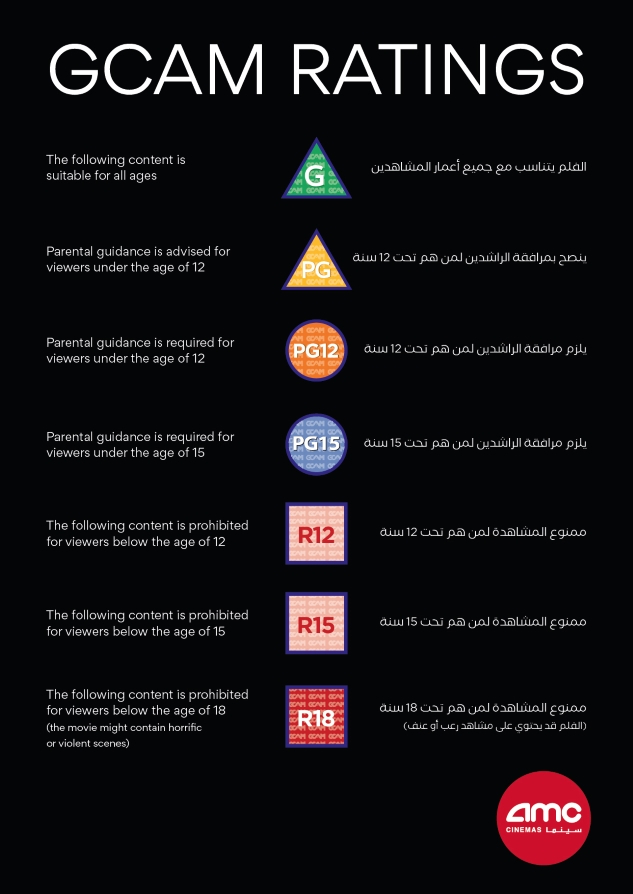Introducing an exclusive AMC Daera Points that pays you back.
- Already a member?
- New to AMC
- Corporate Users
For more about AMC Daera Points and benefits Learn More

- Rules of Entry
- In addition to the code of conduct, there are rules that limit access to a film based on your age.
-
The rules for entry by age are.

- You are not permitted to break the rules; you must ensure that you bring your ID card.
- Talking
- Guests must refrain from talking or communicating in any manner that is disruptive to other guests.
- Eating & Smoking
- Slurping and rustling are not encouraged and are disturbing to other viewers.
- Smoking is prohibited within the cinema hall movie screening.
- Attendance
- Late movie arrivals are not encouraged as they are disturbing to other viewers.
- Guests are not allowed to place their feet or shoes on any chairs around them.
- Guests must retain their ticket stub: failing to show a ticket upon request or sitting in an unassigned seat is prohibited.
- General Rules
- Guests must wear appropriate clothing and footwear that are aligned with KSA values and culture.
- Guests are prohibited from recording the presentation of any trailer or movie.
- Guests Should refrain from using any electronic devices (including phones, tablets or gaming devices, laser) during the movie.
- Parenting
- Guests Should ensure that children are not left unattended and should try to minimize noise and disruption as much as possible (e.g. crying, loud talking, running, etc.)
- Infants are not permitted inside a movie theatre.
- Security
- Guests are prohibited from bringing in, showing, or using real or simulated weapons of any kind.
- Cinema operator reserves the right to check bags being brought into the cinema.
- Failing to follow instructions of, or verbally or physically harassing employees is prohibited.




